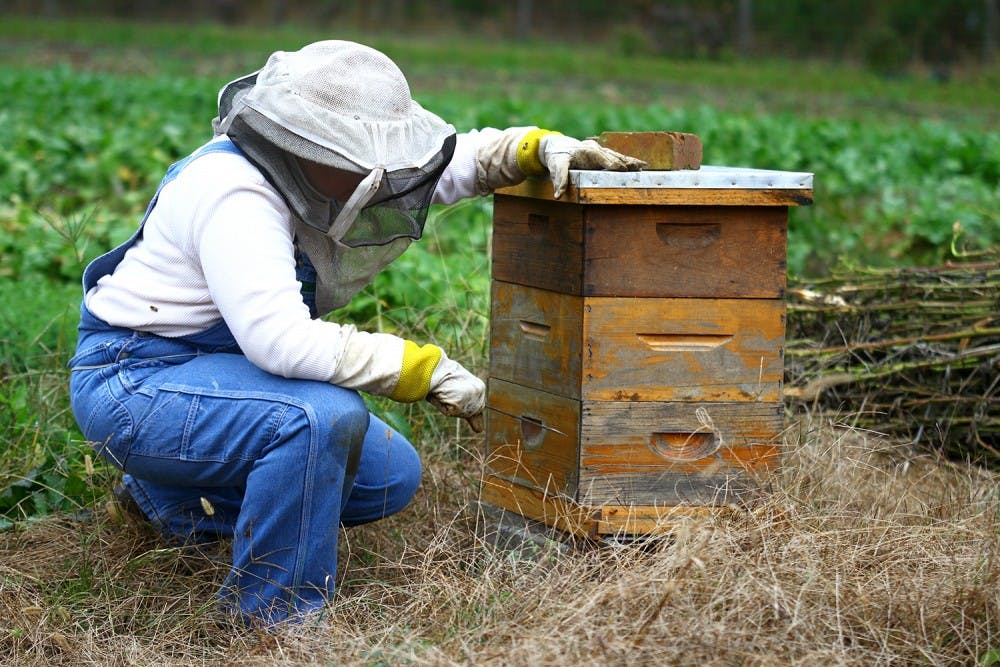In the spring and summer, Orange County bees are buzzing with activity, but in the winter, the hives settle down. Across the United States, bee colony losses for the 2014-15 year averaged 42.1 percent.
“In fall, the bees start to reduce their colony size,” beekeeper Marty Hanks said.
“The first to go are all drone bees. They are kicked out and not allowed back in.”
Drones do not help the worker bees gather pollen and honey or clean and heat the hive. Their only function is to mate with the virgin queen bees.
Winter weather puts stress on the bees, so the workers stay in the hive and form a cluster around the queen. They heat the hive by moving their wing muscles, vibrating the air and producing heat.
Beekeepers do not interfere with the hives in the winter, but they work hard each summer to ensure that the hive has a good chance of survival.
“I was lucky and did not lose bees last year,” N.C. Certified Master Beekeeper Liz Lindsey said.
“I attribute this to my breeding bees for genetic diversity, not gentleness; allowing them to keep adequate stores of honey; and, when possible, placing bees away from pesticides.”



